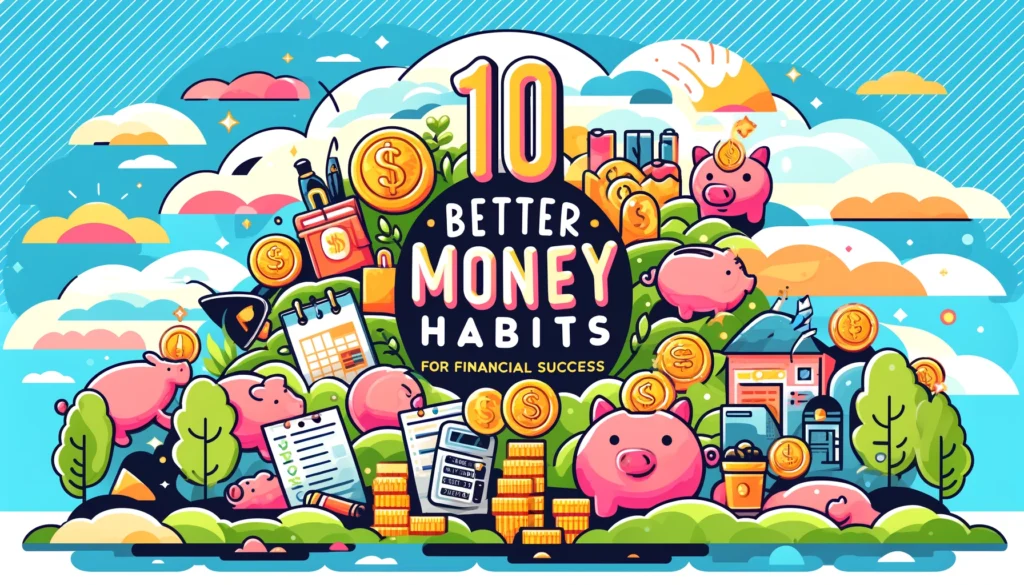Pros and Cons of Debt Consolidation: Is It the Best Way to Manage Your Debt?
Index
– Understanding Debt Consolidation
– Benefits of Debt Consolidation
– Faster Debt Repayment
– Lower Interest Rates
– Simplified Finances
– Fixed Repayment Schedule
– Boost Credit
– Drawbacks of Debt Consolidation
– It Won’t Solve Financial Problems On Its Own
– There May Be Upfront Costs
– You May Pay a Higher Rate
– Missing Payments Will Set You Back
– How to Decide If You Should Consolidate Your Debt
– FAQs About Debt Consolidation
– Should I Consolidate My Debt?
– How Do I Consolidate My Credit Cards?
– Is Consolidated Credit a Good Idea?
– Conclusion
Understanding Debt Consolidation
Debt consolidation involves combining several debts into a new loan with a different, often more favorable, payment structure. By rolling multiple debts into one, you can simplify your finances and potentially secure better terms. The goal is often to lower the overall interest rate or to achieve a more manageable monthly payment.
Benefits of Debt Consolidation
Debt consolidation offers several advantages that can significantly improve your financial situation. Let’s explore these benefits in detail.
Faster Debt Repayment
One of the key advantages of debt consolidation is the potential for faster debt repayment. When you consolidate high-interest debts like credit cards into a lower-interest loan, you’ll pay less in interest over time. This means more of your payment goes toward the principal, helping you clear your debt quicker.
Lower Interest Rates
Lower interest rates are a significant benefit of debt consolidation. As of September 2024, credit card interest rates hover around 20.78%, while personal loan rates average 12.42%. By consolidating your debt, you could move from a higher interest rate to a significantly lower one, saving you money in the long run.
Simplified Finances
Simplified finances are another compelling reason to consider debt consolidation. Managing multiple credit card payments can be stressful and confusing. By consolidating, you only have to worry about one monthly payment, which often makes budgeting easier and reduces the risk of missed payments.
Fixed Repayment Schedule
Debt consolidation typically comes with a fixed repayment schedule, making it easier to plan your finances. Most personal loans have fixed interest rates, so you’ll know exactly how much you owe each month, eliminating surprises.
Boost Credit
Improved credit scores are another benefit of debt consolidation. By consolidating your debts and regularly making on-time payments, you can enhance your credit score. Payment history is a crucial factor in determining your credit score, so timely payments will positively impact it.
Drawbacks of Debt Consolidation
Like any financial strategy, debt consolidation has its downsides. Being aware of these can help you make an informed decision.
It Won’t Solve Financial Problems On Its Own
Debt consolidation will not eliminate your financial problems or poor spending habits. It’s essential to address the root causes of your debt to create a sustainable financial future. Consolidation alone won’t solve underlying issues.
There May Be Upfront Costs
Many debt consolidation loans come with upfront fees or origination costs. These fees can cut into the savings you’d gain from a lower interest rate. It’s crucial to factor these costs into your decision.
You May Pay a Higher Rate
If your credit profile does not qualify for a lower interest rate, consolidation may not be beneficial. You could end up with a higher rate than your current debts, which might not justify the consolidation.
Missing Payments Will Set You Back
Missed payments can severely affect your financial standing. Ensure you can afford the monthly payment before proceeding with debt consolidation, as missing payments can further damage your credit score.
How to Decide If You Should Consolidate Your Debt
To determine if debt consolidation is right for you, consider a few key factors. First, ensure you have a good credit score, typically at least 670. A good score can help you secure better loan terms. Also, prefer fixed payments and a single monthly payment for ease of management.
Secondly, evaluate your ability to repay the new loan. Debt consolidation requires discipline and financial planning. Lastly, consider whether consolidation will truly benefit your financial situation. Always weigh the pros and cons of debt consolidation carefully.
FAQs About Debt Consolidation
Should I Consolidate My Debt?
If you find managing multiple debts overwhelming and seek a lower interest rate, consolidation could be beneficial. However, the effectiveness of this solution depends on your specific financial circumstances and discipline in repayment.
How Do I Consolidate My Credit Cards?
To consolidate your credit cards, start by assessing your total credit card debt. Apply for a personal loan to cover this amount, using the loan to pay off your credit cards. Then, focus on repaying the personal loan in fixed installments.
Is Consolidated Credit a Good Idea?
Consolidated credit can be a wise decision for those looking to streamline their debt management. It simplifies multiple payments into one and can potentially lower your interest rate. Yet, it’s essential to ensure that it fits your financial plan.
Conclusion
Debt consolidation offers a structured approach to managing multiple debts. By consolidating, you can enjoy benefits like lower interest rates, simplified finances, and improved credit scores. However, it’s vital to be mindful of the potential drawbacks and ensure it aligns with your financial goals. Overall, understanding the pros and cons of debt consolidation can help you make an informed decision that best suits your debt management needs. Before opting for consolidation, consider consulting financial experts and thoroughly analyzing your situation.
For more insights, check these pros and cons of debt consolidation and additional perspectives on whether this option is right for you.

